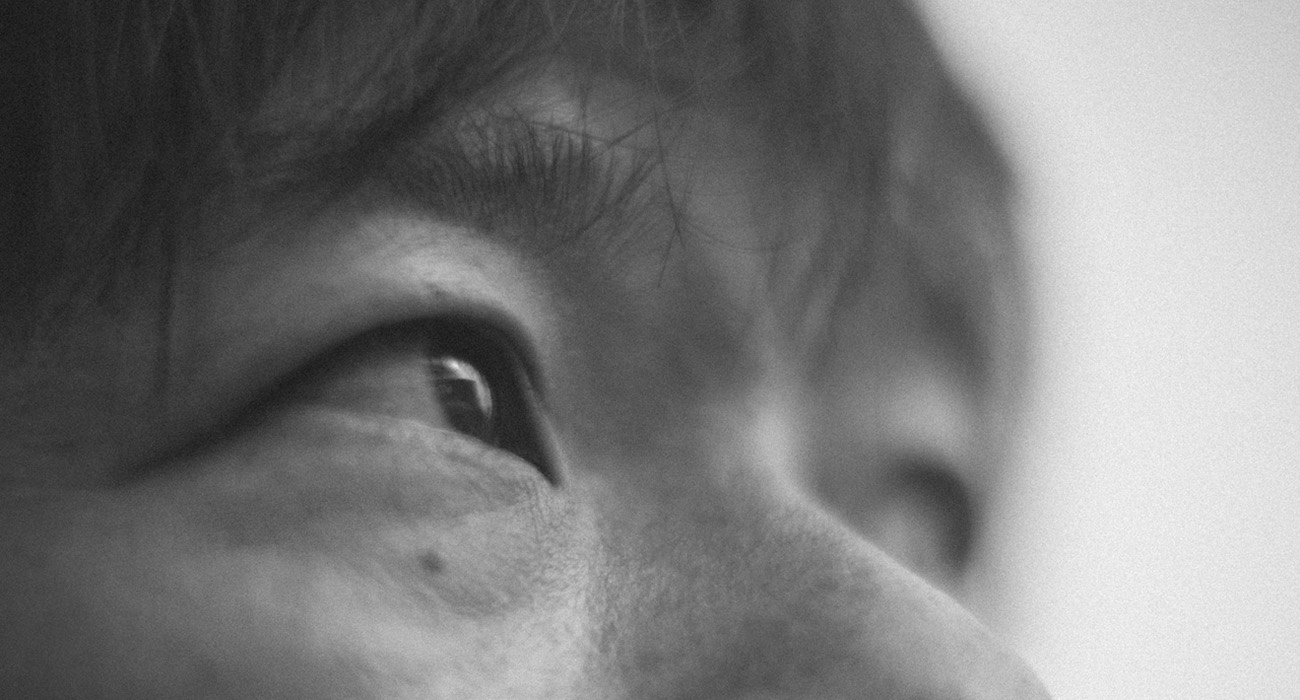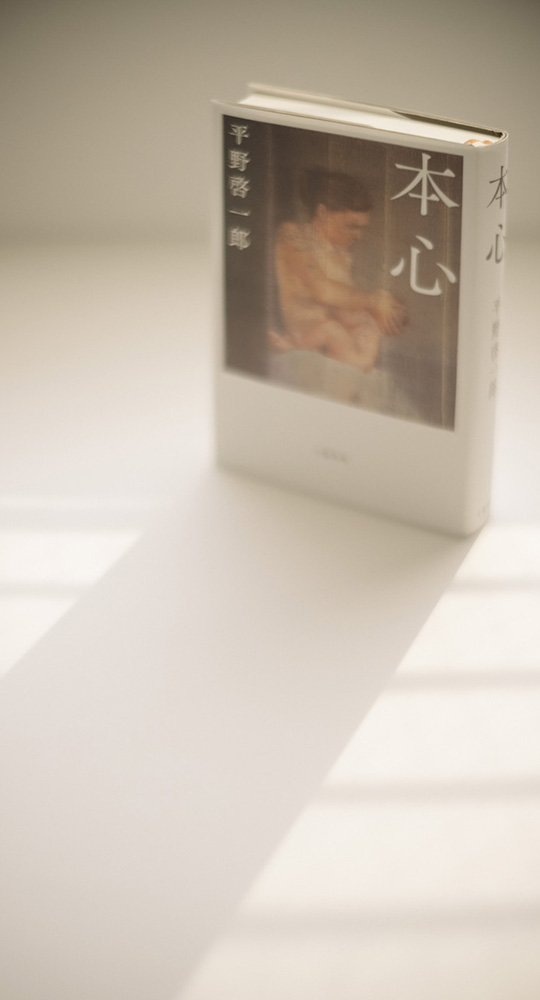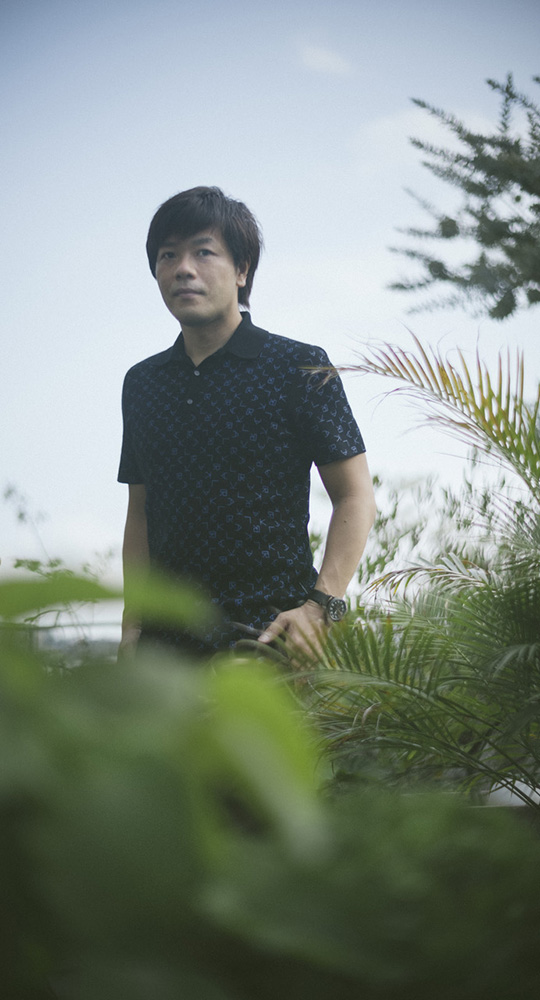
取材・テキスト:太田菜穂子 写真:瀧本幹也
『 本心』を読ませていただきました。四半世紀後の東京を舞台とする物語、未来の東京に はどのような職業が存在し、どんな日常があるのかをリアルに垣間見る思いでした。 近未来の日本社会を舞台とする、今回の作品を執筆されるきっかけについて伺えますか?
平野|
近年、ロボットやAIの進化など、未来について聞かれることが増えていました。僕自身、 今年8歳と10歳になる二人の子どもの親として、この子たちがこれからどんな時代を生きていくのだろうかと考えると、リアルタイムで現在の教育のあり方に真剣に向き合わざるを得ません。さらに、僕も団塊ジュニアなのですが、この世代は人口が多い故に就職で躓き、社会の格差を味わってきています。近い将来、この世代が高齢者になった時、少子化が進行する日本社会が彼らを支えることは到底不可能です。その時、彼らは何を思うだろうか?と考えるようになり、執筆に至りました。
具体的に構想されたのはいつ頃からですか?
平野|
連載(『北海道新聞』、『東京新聞』、『中日新聞』、『西日本新聞』連載小説として 2019年9月スタート)が始まる半年ほど前です。僕たちにどんな未来が待っているのかを予測することは、加速するテクノロジーの進化、さらに未だに出口が見えないコロナ感染 により、ますます難しくなってきています。 ただ、今回の作品の舞台、2040年代の世界が直面しているだろう課題で、確実に予想できることもあります。
まず、地球温暖化による気候変動。近年、世界各地から頻繁に報告される洪水や山火事、今までも多くの警告が発せられてきましたが、これほど大規模の自然災害が世界各地で頻発するとは誰も想像できなかったでしょう。次に、拡大する貧富の格差、そして日本社会で進行する少子高齢化社会がもたらす歪みです。子どもを増やすには、かなり多くの夫婦が三人以上の子どもを持つことが大前提になりますが、明日への視界が悪化するコロナ禍で、それを期待するのは無理でしょう。しかしながら、僕たちはそんな時代を生きていかなければならないのです。



今、整理してくださった3つの社会課題の中で、本作品を通して取り組みたいと考えられた社会課題はどれですか?
平野|
まずは格差問題です。現在、人類はかつてないほどの格差社会の渦中にあります。超富裕層とも言える一握りの人々が世界の富の大半を保有し、何十億もの貧困層は生活が楽になる可能性が閉ざされ、さらなる貧困に喘いでいるのが現実です。たまたま豊かな家庭に生まれたかそうではないかで、人生への可能性が全く変わってしまう...。確かに格差はどの時代にも、どんな社会にも存在しました。が、現在のそれはかつてない異常なレベルにあります。にもかかわらず、これを是正する力があまりに弱いと感じます。
次は“生命” のあり方。 最新の生命医学の研究は発達しており、医学的に生命を生み出す、つまり“子ども” を誕生させることに介入できるレベルに達していると聞きます。さらにその先の子どもを育てる環境、“家族” のあり方ですが、もっと多様なスタイルが模索されるべきではないかと。 LGBT のカップルのみならず、友達同士で子どもを育てる“家族” のユニットへの展開があってもいいのではないかと考えます。
そして、“死” について。 今回の作品では「自由死」として、日本社会が無条件での安楽死が認められている状況を描きました。僕個人は「自由死= 自死」に反対です。人間はその尊厳において「自然死」 であるべきだと。現在の日本ではまだ認められていない「自由死」ですが、既に諸外国の中には厳格な条件下で認可している国もあります。
ただ、個人主義が浸透している欧米と異なり、自己責任の意識が強い国民性の日本では「自由死」を選ばざるを得ない状況が起こることを危惧しているのです。その決断の背後に、超高齢化社会、格差問題が潜んでいること、この現実をしっかり認識した上で、慎重に議論を重ねていって欲しいと願っています。



平野さんにとって“小説を書くこと” とは、社会が直面する課題解決に具体的にコミットす ることなんですね。
平野|
かつての小説家の仕事は、現実社会が内包する問題や矛盾を抉り出すまでで十分でした。 そこから先は読者に委ねる、ある意味では読者を突き放すスタイルでも通りました。が、 現在の読者たちは「だったらどうしたらいいのですか?」と、その先への提言を求めてきます。
いつ頃からそのような傾向が出てきたのでしょう?
平野|
文学を通して読者と向き合うようになって20年余りになるのですが、読者からこうした反応が届くようになったのは、『決壊』(初出:2006年~2008年『新潮』に掲載 / 初版 :2008 年)を発表した頃からです。日常生活の中で文学を必要とし、厳しい現実を今まさに生きている読者からの切実な声が寄せられたのです。読者カードを読みながら、小説家として文学を通して彼らにもっと寄り添い、応えたいと考えるようになりました。結末の、その少し先まで読者に伴走し、何らかの解を提示する。そして、その先“どうするのか?”、“どう生きるのか?” は自分で考えてもらう、これが現在の僕の執筆姿勢になっています。

I have read Honshin. Set a quarter of a century into Tokyo’s future, I wanted to get a real glimpse of what kind of professions will exist in Tokyo in the future, and what daily life would be like. Can you tell us why you wrote this book, set in Japanese society’s near future?
Keiichiro Hirano (KH)|
In recent years, we have been hearing more and more about the future, such as the evolution of robots and AI. As a parent of two children who will be 8 and 10 this year, if I think about what kind of era they will live in in the future, I have no choice but to seriously face the current state of education in real time. Furthermore, I am a junior baby boomer, and because of the large population, this generation has stumbled upon employment and is facing social disparities. In the near future, when this generation becomes elderly, it will be impossible for Japanese society with its declining birthrate to support them. I began to wonder, when this happens, what they will think? And this is how I came to write my novel.
When did you come up with the idea?
KH|
About half a year before it was serialized (it started in September 2019 as a serialized novel in Hokkaido Shimbun, Toyko Shimbun, Chunichi Shimbun and Nishi-Nippon Shimbun newspapers). Predicting what the future will hold for us is becoming increasingly difficult due to the accelerating evolution of technology, and the uncertainness surrounding the Covid-19 pandemic.
However, there are certain things, challenges the world will face, that can be predicted for this story, set in the 2040s. Firstly, climate change due to global warming. In recent years, floods, wildfires and many warnings have been issues from all over the world, but no one could have imagined such large-scale natural disasters would occur so frequently around the world. Next, the widening gap between rich and poor, and the distortions caused by Japanese society’s declining birthrate and ageing society. In order to increase the number of children, it is a major premise that quite a large number of couples have three or more children, but this is almost impossible to expect due to the pandemic and the poor outlook as a consequence. Yet we must live in such a time.



Of the three societal issues you have just highlighted, which did you want to tackle through this book?
KH|
First is the issue of disparity.
Today, humanity is in the midst of unprecedented inequality in society. The reality is that a handful of ultra-rich people own most of the world’s wealth, and billions of poor people are suffering from further poverty. The door of opportunity to make their lives easier is closed to them. Whether you are born into a rich family or not completely changes your opportunities in life. Most certainly, inequality has existed in every era and in every society, but it is now at an unprecedented level. Yet I feel powerless to correct it.
Next is what ‘Life’ should be.
I hear that the latest biomedical research is so highly developed that it has reached a level where it can medically intervene in creating life, that is, giving birth to a ‘child’. I think we need to seek more diverse styles of ideal ‘families’ and environments for raising children. Developing not only LGBT couples, but also ‘family’ units of people raising children with friends.
Finally, about ‘Death’.
In this work, ‘Free Death’ depicts a situation in which Japanese society allows unconditional euthanasia. I personally oppose the idea that ‘Free Death = Suicide’. Humans should be allowed the dignity of ‘Natural Deaths’. Although ‘Free Death’ is not yet recognized in Japan, some overseas nations have already approved it, with strict conditions. However, unlike Europe and the United States, where individualism pervades, I am afraid that Japan, with its strong sense of self-responsibility as a national character trait, will encounter a situation where the only choice is ‘Free Death’. The super-aging society and the problem of disparity lie behind this decision, and I hope that we will continue to discuss it carefully with an awareness of this reality.



‘Writing a novel’ for you seems to mean ostensively committing to solving problems facing society.
KH|
Past authors’ works were enough to uncover the problems and contradictions that the real world entails. From that point onward, it was left to the reader, and in a sense the style was to push the reader away. However, modern readers ask for suggestions about what they should do next.
When did such a tendency emerge?
KH|
I have been dealing with readers through literature for more than 20 years, and this kind of reader reaction started around the launch of Breach (it first appeared in Shincho, 2006-2008, and was first published in 2008). Readers were vociferous, readers who needed literature in their daily lives and were living the current harsh reality. As I read readers’ comments, as a novelist I began to want to be closer to them, responding to them through literature. Accompanying the reader to the end, then a little further, presenting some solutions. Then ask them to think about what they should do, how they should live. That’s my current writing stance.